
Code: 01324136
Rwanda's Gacaca Courts
by Paul Christoph Bornkamm
Rwanda's Gacaca courts provide an innovative response to the genocide of 1994. Incorporating elements of both African dispute resolution and of Western-style criminal courts, Gacaca courts are in line with recent trends to revive ... more
- Language:
 English
English - Binding: Hardback
- Number of pages: 274
Publisher: Oxford University Press, 2011
- More about this

You might also like
-

Piracy and Armed Robbery at Sea
162.12 € -

Targeted Killings
112.83 € -

Rwanda Crisis
24.03 € -14 % -

Gnomon
13.53 € -25 % -

Premises
31.41 € -12 % -

Bi-criteria Flow Shop Scheduling with Sequence Dependent Setup Time
34.34 € -9 % -

Coddling of the American Mind
13.32 € -7 %
Give this book as a present today
- Order book and choose Gift Order.
- We will send you book gift voucher at once. You can give it out to anyone.
- Book will be send to donee, nothing more to care about.
More about Rwanda's Gacaca Courts
You get 386 loyalty points
 Book synopsis
Book synopsis
Rwanda's Gacaca courts provide an innovative response to the genocide of 1994. Incorporating elements of both African dispute resolution and of Western-style criminal courts, Gacaca courts are in line with recent trends to revive traditional grassroots mechanisms as a way of addressing a violent past. Having been devised as a holistic approach to prosecution and punishment as well as to healing and repairing, they also reflect the increasing importance of victim participation in international criminal justice. This book critically examines the Gacaca courts' achievements as a mechanism of criminal justice and as a tool for healing, repairing, and reconciling the shattered communities. Having prosecuted over one million people suspected of crimes during the 1994 genocide, the courts have been both praised for their efficiency and condemned for their lack of due process. Drawing upon extensive observations of trial proceedings, this book is the first to provide a detailed analysis of the Gacaca legislation and its practical implementation. It discusses the Gacaca courts within the framework of transitional and international criminal justice and argues that, despite the trend towards local, tailor-made solutions to the challenges of political transition, there is a common set of principles to be respected in addressing the past. Evaluating the Gacaca courts against the backdrop of existing or emerging principles, such as the duties to investigate and prosecute, and the right to the truth, the book provides a sophisticated critique of Rwanda's reconciliation policy. In doing so, it contributes to the development and the clarification of these principles. It concludes that Gacaca courts have achieved a great deal in stimulating a basic discourse on the genocide, but they have also contributed to assigning collective responsibility and may thus end up deepening the divides within Rwandan society.
 Book details
Book details
Book category Books in English Law International law Public international law
154.04 €
- Full title: Rwanda's Gacaca Courts
- Author: Paul Christoph Bornkamm
- Language:
 English
English - Binding: Hardback
- Number of pages: 274
- EAN: 9780199694471
- ISBN: 0199694478
- ID: 01324136
- Publisher: Oxford University Press
- Weight: 574 g
- Dimensions: 240 × 163 × 21 mm
- Date of publishing: 05. September 2011
Trending among others
-

Brownlie's Principles of Public International Law
87.27 € -

Environmental Protection
13.73 € -24 % -

Screening Foreign Direct Investment in the EU
167.78 € -

International Law
44.44 € -
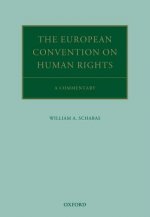
European Convention on Human Rights
91.01 € -5 % -

European Union Law: A Very Short Introduction
12.52 € -10 % -

Environmental Law: A Very Short Introduction
11.61 € -10 % -

Refugee in International Law
74.54 € -

Sceptical Essays on Human Rights
70.30 € -

Europarecht in Fällen
41 € -2 % -

Cyber Warfare and the Laws of War
48.78 € -
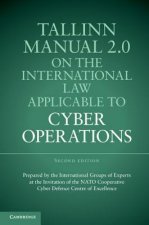
Tallinn Manual 2.0 on the International Law Applicable to Cyber Operations
79.79 € -

Stanislavski On Opera
35.14 € -1 % -

Cassese's International Criminal Law
77.77 € -

Diversification and Fragmentation of International Criminal Law
301.12 € -8 % -

Textbook on International Law
52.62 € -15 % -

Principles of International Environmental Law
62.52 € -

International Law 2nd Edition
62.52 € -

Offshore Finance
65.05 € -
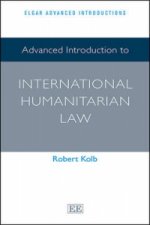
Advanced Introduction to International Humanitarian Law
30.70 € -10 % -

Human Dignity
51.31 € -
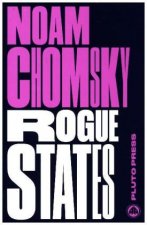
Rogue States
21.10 € -20 % -

Critical Approaches to International Criminal Law
72.42 € -

Criminological Approaches to International Criminal Law
103.03 € -14 % -

Self-Defence in International and Criminal Law
181.42 € -

Handbook of Environmental Policy Evaluation
160.20 € -

Pluralism in International Criminal Law
211.62 € -
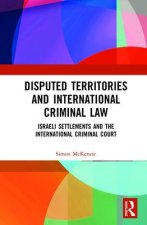
Disputed Territories and International Criminal Law
168.29 € -

A Farewell to Wars
30.19 € -2 % -

EU External Relations Law
87.37 € -

Water Capitalism
50.30 € -

Diplomatic Handbook
124.75 € -

Cases & Materials on International Law
70.90 € -

International Environmental Law
53.43 € -

Modern Diplomacy
56.96 € -

Economic Sanctions and International Law
145.56 € -

Principles of International Economic Law
97.67 € -
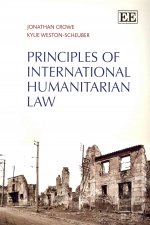
Principles of International Humanitarian Law
33.02 € -10 % -

Critical Introduction to International Criminal Law
39.89 € -1 % -

Aust's Modern Treaty Law and Practice
50.80 € -1 % -

International Investment Law and Arbitration
66.66 € -2 % -

Theoretical Foundations of Law and Economics
43.83 € -

European Public Prosecutor's Office
188.49 € -

Food Law and Regulation for Non-Lawyers
95.55 € -3 % -

Should Trees Have Standing?
45.95 € -

Customary International Law in Times of Fundamental Change
41.91 € -

World Crisis and International Law
30.19 € -2 % -

International Criminal Law
75.15 € -

UN Convention on Contracts for the International Sale of Goods
125.56 €
Collection points Bratislava a 2642 dalších
Copyright ©2008-24 najlacnejsie-knihy.sk All rights reservedPrivacyCookies



 15549 collection points
15549 collection points Delivery 2.99 €
Delivery 2.99 € 02/210 210 99 (8-15.30h)
02/210 210 99 (8-15.30h)